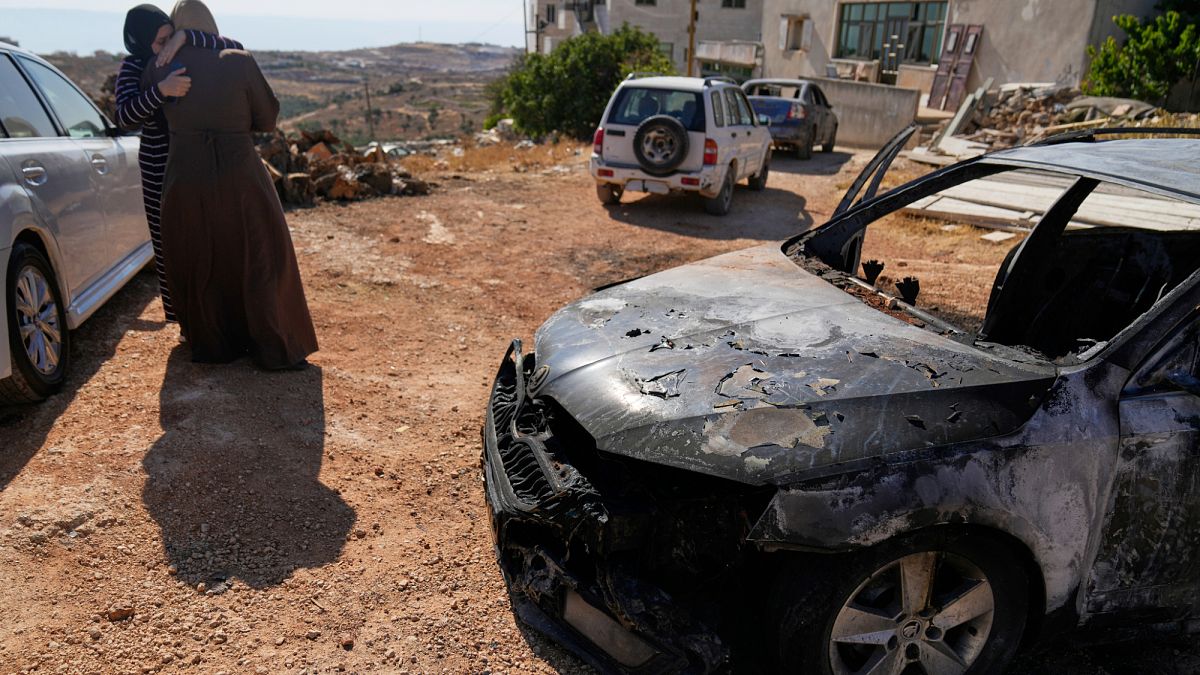

In recent developments, the Middle East has become a focal point of international attention, as various incidents and declarations have heightened tension in the region. The delicate balance of power in this part of the world faces significant challenges, marked by recent confrontations and political maneuvers.
The West Bank has seen escalating violence, where three Palestinians lost their lives in clashes with Jewish settlers. This disturbing event was captured on CCTV, underscoring the volatile situation in the occupied territories. Such incidents exemplify the ongoing strife and the urgent call for measures to address the underlying issues fueling these clashes.
While local tensions simmer, the broader geopolitical landscape has been shaped by recent developments involving Iran. In his first public appearance since the recent ceasefire, Iran’s Ayatollah Ali Khamenei made bold claims, positioning Tehran as the victor over Israel. His assertion highlights the resilient stance Iran seeks to project in the face of external pressures, also criticizing the involvement of the United States.
Ayatollah Khamenei’s remarks come in the aftermath of a declared ceasefire and a retaliatory missile strike on a US base in Qatar. These actions illustrate the ongoing confrontation between Iran and the United States, accentuating the complex dynamics at play. The Iranian leader’s comments also conveyed a warning of potential future attacks, should the US carry out further strikes, indicating a precarious peace that hinges on diplomatic finesse and restraint.
Complementing this narrative is the perspective emanating from the United States. The CIA has reported that recent US strikes have significantly damaged Iran’s nuclear facilities, a claim underscored by the Trump administration. This representation of success conveys a message of strategic advantage, although it is met with skepticism in some quarters.
The intricate layers of this conflict are further compounded by concerns over intelligence manipulation, reminiscent of past controversies. The concept of “stovepiping,” where intelligence assessments are tailored to suit political biases, has resurfaced in discussions, drawing parallels to the build-up to the Iraq war in 2003. This aspect sheds light on the internal political dimensions influencing the broader diplomatic interactions.
Amid these developments, Israel’s domestic policies concerning Gaza have sparked debate, particularly regarding humanitarian aid. Israel’s national security minister advocated for a complete halt to aid, alleging misappropriation by Hamas. This stance introduces another facet of the ongoing regional discourse, questioning how humanitarian efforts intersect with security concerns in conflict zones.
In the United States, these events have sparked significant political discourse, with senators expressing frustration over delayed intelligence briefings. The apparent restriction of intelligence sharing by the Trump administration has led to strong reactions from Democrats, who demand greater transparency regarding military actions and their implications.
As the region navigates these complex realities, the need for measured diplomacy and constructive dialogue becomes increasingly evident. The interactions between local tensions and international strategies illustrate the intricacies of Middle Eastern geopolitics, where outcomes often hinge on sensitive negotiations and mutual understanding. The way forward calls for a concerted effort to reconcile the various narratives, fostering peace and stability in this historically sensitive region.
Source: {link}
